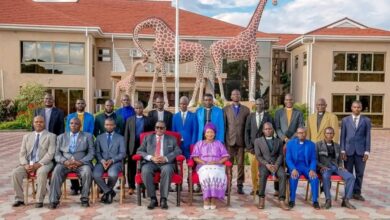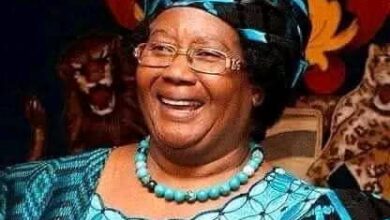Columns
People over politics: A call for depoliticization in Malawi’s national affairs

By Burnett Munthali
The problem in Malawi is that we have politicized everything on almost every function.
This powerful statement was made by Engineer Vitumbiko Mumba during the “People Over Politics” public lecture held at the University of Malawi’s Great Hall in Zomba.
His words, though brief, echoed loudly in the minds of the audience and beyond, as they captured a profound truth about the state of governance and public service in Malawi.
Engineer Mumba’s observation reflects a deeply rooted challenge in the country—where nearly every decision, every policy, and every public function is influenced, shaped, or manipulated by political interests.

This has led to a situation where even the most basic and essential services—such as healthcare, education, agriculture, and infrastructure—are often entangled in partisan considerations.
It is a situation where appointments to public office are frequently made not based on merit or expertise, but rather on political loyalty and affiliation.
Procurement processes, allocation of resources, and development priorities are routinely skewed to benefit political allies rather than address genuine community needs.
As a result, public institutions struggle to operate independently, and civil servants are often caught in the crossfire of political maneuvering.
This culture of politicization has had a corrosive effect on professionalism, integrity, and efficiency in the public sector.
It demoralizes capable individuals who wish to serve their country honestly, but find themselves sidelined because they are not connected to the right political networks.
At the same time, it promotes a culture of mediocrity, where performance and accountability are secondary to political survival.
When almost every function is politicized, the true purpose of governance—to serve the people—is lost.
This undermines trust in public institutions and creates a sense of helplessness and apathy among citizens.
The lecture at the University of Malawi was therefore more than an academic exercise—it was a moment of reckoning.
It brought together students, academics, civil society actors, and concerned citizens to confront a painful but necessary truth.
The theme, “People Over Politics,” was itself a call to realign national priorities and restore the voice of ordinary Malawians in how the country is run.
It was a reminder that politics should be a tool for development, not a barrier to it.
Engineer Mumba’s words challenged the audience to imagine a Malawi where decisions are made based on data, justice, and the common good, rather than short-term political gains.
He urged the nation to consider the long-term damage that politicization causes—not just to institutions, but to the national psyche.
When people begin to believe that nothing works unless it is politically driven, cynicism takes root, and hope begins to wither.
In such an environment, it becomes difficult to build consensus, foster innovation, or maintain continuity in national programs.
Each new administration feels the need to start from scratch, not because previous efforts were ineffective, but because they are associated with political rivals.
This constant cycle of politicized governance leads to policy instability and wasted resources, hindering sustainable development.
To break this cycle, Engineer Mumba emphasized the importance of reclaiming public institutions from the grip of political control.
He called for the strengthening of oversight bodies, the promotion of merit-based recruitment, and the protection of technocrats from political interference.
He also stressed the need for civic education to empower citizens to demand transparency and fairness in governance.
The lecture ended with a resounding sense that change is possible—but only if Malawians collectively reject the normalization of politics in every corner of national life.
Depoliticization does not mean eliminating politics altogether, but rather redefining its role so that it serves the interests of the people, not the ambitions of the few.
It means creating systems that are resilient, fair, and inclusive—systems that put people first.
Engineer Vitumbiko Mumba’s message was clear: Malawi stands at a crossroads.
The country can continue down the path of politicized dysfunction, or it can choose a new path—a path where competence, integrity, and service define leadership.
That choice begins with acknowledging the problem, as Mumba so boldly did, and taking concrete steps to address it.
In doing so, Malawi can begin to build a future where politics empowers rather than entangles, and where the people truly come before politics.






